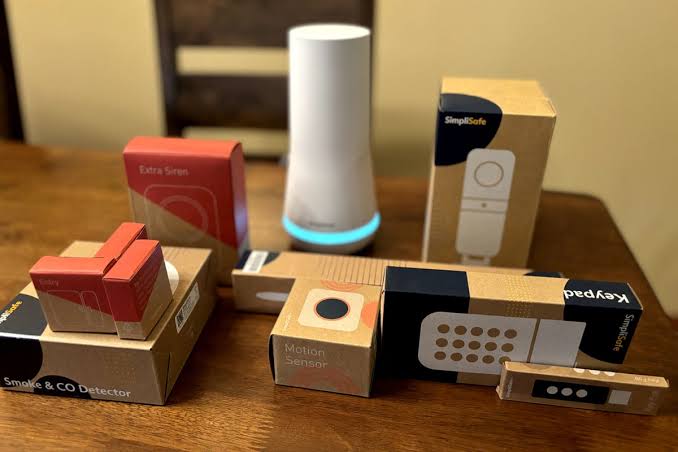Introduction: Parenting in the Digital Age
Parenting in 2025 has transformed dramatically compared to even a decade ago. With the rise of smart technology, many challenges that once caused stress, fatigue, or confusion for parents are now being eased by intelligent gadgets designed to support families in everyday life. From baby monitors and sleep trackers to AI-enabled educational tools and virtual assistants, smart gadgets have become valuable allies in modern parenting.
These innovations are not replacing the role of parents, but rather enhancing their ability to monitor, nurture, and respond to their children’s needs more effectively. As parenting continues to evolve with technology, it’s important to understand how these devices are shaping the support systems that help families function smoothly.
Outline of Key Benefits
- Enhanced safety and monitoring
- Improved time and task management
- Support for infant and toddler care
- Educational development tools
- Emotional and mental health support
- Facilitating remote parenting and co-parenting
- Building stronger family routines and organization
Enhanced Safety and Monitoring
Safety is often the number one concern for parents, especially those with infants and toddlers. Smart gadgets provide real-time monitoring and alerts that help parents feel more secure, even when they’re not in the same room or location as their child.
- Smart baby monitors now include features such as two-way audio, night vision, motion detection, and even breathing and heart rate monitoring.
- GPS-enabled tracking devices can be attached to children’s backpacks or worn as smartwatches, helping parents track their child’s location on the go.
- Smart door locks and home security systems allow parents to control access and receive alerts when children arrive home from school or visitors approach.
By 2025, these devices have become more accurate and less intrusive, allowing parents to stay connected with their child’s environment without creating dependency or anxiety.
Improved Time and Task Management
One of the most difficult aspects of parenting is managing time, especially when juggling careers, housework, and childcare responsibilities. Smart gadgets help parents stay organized and reduce the mental load.
- Digital assistants such as Amazon Alexa or Google Nest can create schedules, set reminders for medicine or school events, and automate home functions like lighting and temperature.
- Smart calendars can be shared between spouses or caregivers, ensuring everyone stays informed about appointments, pickup duties, or extracurricular activities.
- Meal planning apps and grocery list organizers simplify daily routines and reduce last-minute stress.
These tools streamline day-to-day parenting, allowing more time to be spent on meaningful interaction rather than logistical coordination.
Support for Infant and Toddler Care
The early stages of parenting can be overwhelming, especially for first-time parents. Smart gadgets tailored for babies and toddlers offer invaluable support during these critical developmental years.
- Smart cribs and bassinets use motion and sound detection to soothe babies back to sleep, reducing nighttime disturbances.
- Formula preparation machines measure water and powder perfectly, ensuring consistent nutrition.
- Wearable baby monitors track sleep cycles, body temperature, and diaper changes, providing useful data through connected apps.
In 2025, many of these devices are now integrated into a single dashboard that offers personalized recommendations, easing the learning curve for new parents and giving peace of mind.
Educational Development Tools
Beyond physical care, smart gadgets play a major role in supporting children’s early learning and cognitive development. Parents can use these tools to guide their child’s intellectual growth in an interactive and adaptive way.
- Tablets and learning apps offer personalized educational content based on a child’s age, learning pace, and interests.
- AI-powered reading companions assist with vocabulary, pronunciation, and comprehension by reading stories aloud and asking questions.
- Smart toys use voice recognition and responsive dialogue to encourage creativity, problem-solving, and social interaction.
These tools not only supplement early education but also give parents insights into their child’s learning strengths and areas that need more attention.
Emotional and Mental Health Support
Parenting can be emotionally draining, and technology is beginning to play a role in supporting the mental well-being of both parents and children.
- Meditation apps and smart wearables now include features tailored for stressed parents, helping them manage anxiety and promote relaxation.
- Emotion-sensing gadgets, such as mood lamps or biometric devices, provide feedback based on physiological cues and encourage moments of calm in stressful households.
- For children, calming toys with sensory feedback, guided breathing tools, and music apps are designed to help regulate emotions and manage tantrums.
By 2025, the focus on mental health has expanded to include family-centered wellness technologies, making self-care more accessible and integrated into daily parenting life.
Facilitating Remote Parenting and Co-Parenting
Smart gadgets are also proving valuable for divorced, long-distance, or working parents who need to co-manage responsibilities and maintain bonds with their children despite being physically apart.
- Video calling devices with child-friendly interfaces make it easy for children to stay connected with remote caregivers.
- Digital co-parenting apps allow parents to coordinate schedules, track expenses, and communicate updates respectfully.
- Remote monitoring devices let non-custodial parents check in on their child’s school performance, sleep habits, or emotional well-being through shared dashboards.
These innovations strengthen family ties across distances and help maintain consistency in parenting approaches.
Building Stronger Family Routines and Organization
Creating a structured, predictable environment is crucial for child development. Smart gadgets now support this by enabling families to build consistent daily routines.
- Smart home systems can be programmed to signal bedtime with dimmed lights and calming music, or to wake children with gentle alarms and morning reminders.
- Chore-tracking apps with reward systems gamify household responsibilities and promote accountability.
- Family hubs and message boards built into smart fridges or tablets serve as digital centers for coordination, lists, and updates.
This structure not only improves discipline and cooperation but also helps children learn responsibility and time management from a young age.
Conclusion: Empowering Parents Through Technology
In 2025, smart gadgets are playing a transformative role in the lives of parents by offering support that is timely, practical, and personalized. From enhancing safety and health monitoring to supporting education and emotional well-being, these technologies are reshaping what it means to raise children in the digital age.
Rather than replacing human touch and intuition, smart gadgets act as silent partners—easing stress, saving time, and enabling parents to be more present and proactive. As technology continues to evolve, so will the support systems available to families, offering a future where parenting can be both more manageable and more meaningful.



